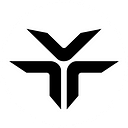DAOs are the death of the centralized Internet
Let’s talk about Web3, the decentralized alternative to the old Internet that’s sweeping the world and is closely tied to blockchain technology. Actually, decentralization is one of 5 principle differences between Web2 and Web3:
Decentralization
Web2 is characterized both by architecture (servers, protocols, etc.) and the architecture’s providers (a few big tech companies). In contrast, Web3’s decentralization means that data and services are distributed across a network of computers that can in theory be run by any person, making it harder for any one entity to control them (though some corporate ownership is inevitable, such as with mining pools and DAOs (more on those below).
Ownership
In Web2, users do not have full control over their data, which is often collected and monetized by companies (hello Meta and Alphabet!). In Web3, users have more ownership and control over their data, having a say over how and whether it is used and/or monetized.
Interoperability
Web2 services and applications are often siloed, meaning they do not easily work together. Inspired by the open-source culture, Web3 applications and services are designed to be interoperable, allowing them to work seamlessly with each other. Even dApps created on different blockchain networks can be interoperable via bridges and other connecting protocols.
Trust
Not that anybody actually trusts centralized banks or tech giants, but Web3 aims to eliminate the need for trust entirely by relying on decentralized networks and smart contracts that operate based on programmable code and automatic execution.
Privacy
Web2 is often criticized for its lack of privacy, as companies collect and sell user data (again, queue Alphabet and Meta). Web3 is designed to be more private, thanks to the use of encryption and decentralized networks. Web3 often has a culture (and capability) for users to use pseudonymous identities and multiple wallets to control their privacy much better than Web2 would allow.
And then there is the secret weapon of Web3….
DAOs
DAOs (Decentralized Autonomous Organizations) are any group formed to govern together democratically and automatically. They are essential to Web3 for a number of reasons:
Governance
The only way to prevent centralization of control (governance) is to give anyone who wants it an easy way to do it on par with anyone else, to democratize it. DAOs allow stakeholders to make decisions through a transparent and democratic process of submitting proposals and voting on them. This is essential to Web3 as it enables communities to suggest, make, and execute decisions without relying on centralized intermediaries.
DAOs built with DeXe’s DAO constructor, for example, will be able to be fully modified via the proposal process, and any decision could be made that way. Anyone with the governance token/NFT will be able to be part of the governing process from suggestion to execution.
Ownership
Without a decentralization of ownership, Web3 would keep the worst of Web2: what’s the point of voting for something you cannot own? DAOs enable decentralized ownership, allowing stakeholders to have real stakes in the organization and giving them control over their data, ideas, and work.
In DeXe-created DAOs, this will mean access to the DAO treasury, being able to control marketing, development, partnership, and other functions — all via the democratic proposal process.
Funding
Instead of having to trust shadowy Web2 investors to have everybody’s interest at heart, DAOs enable every participant of a project to participate in funding and have a say in what funding the DAO will accept. Nowhere was it better illustrated than in ConstitutionDAO raising $47 million in a decentralized way from people with the same goal.
Our DAO constructor will allow DAOs to be created for any purpose and sub-DAOs created from them for even more specific uses, such as a joint investment into real estate, for example. Users will have full control over both the raising and the distribution of funds.
Development
DAOs enable stakeholders to contribute to the development of a project through open-source collaboration rather than rely on corporate teams whose interests may be better served by shutting down promising innovation rather than implementing it.
While our DAO constructor will not require any coding (creating a DAO takes a few clicks), DAO members will be free to hire, fire, and determine rewards for the development team as well as to set the goals for development (and allocate budgets — full control, full democracy).
Arbitration
Not everyone can pull an Elon Musk by buying Twitter to unblock accounts. Instead of arbitrary corporate algorithms deciding your fate, DAOs can get disputes resolved through a transparent and democratic process each DAO can fine-tune for themselves.
In our DAO framework, DAO creators will be able to appoint validators (who can later be added/removed democratically via proposals) to act as arbitrators and a second layer of protection against malicious proposals. All users will be able to act as arbitrators by submitting proposals on anything they’d like to arbitrate. DeXe Funds will take this a step further with an insurance fund for trading losses arbitrated by the entire DAO community.
The future is decisively Web3
Right now, Web2 still has more resources accumulated via decades of often monopolistic, abusive behavior toward consumers. But Web3 has the technological and ideological edge. Already, the adoption of DAOs and of the blockchain revolution as a whole is proceeding a lot faster and wider than the Internet revolution did three decades ago. With its unique selling point being “democracy that leads to better outcomes for all involved,” Web3 has a clear path to dominance. RIP centralized Internet, you had a good run.
Stay tuned!
Website | Telegram channel | Telegram chat | Facebook | Medium| LinkedIn | Twitter | Reddit| Discord
